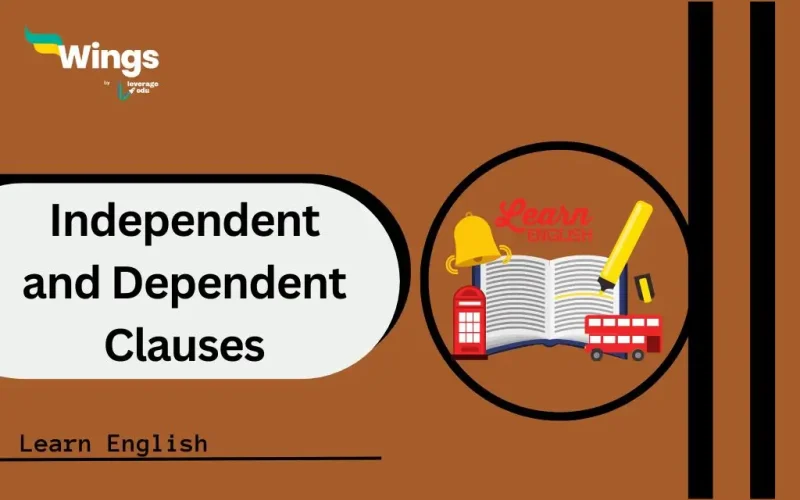Understanding independent and dependent clauses is very important for speaking and writing in English. As a grammar nazi, you must know the difference between the two and how you can punctuate the sentence with the two. But before that, we must know what are clauses. Well, they are a group of words that contain both a subject and a predicate in English grammar. They can either be long or short. Keep reading this blog post to know the difference between both clauses.
This Blog Includes:
What are Independent Clauses?
Independent Clauses are those which can stand as complete sentences but must contain a subject and a predicate. Other than this, they can also be a part of a compound sentence (made up of two or independent clauses.) They can be joined by including them with a coordinating conjunction. Here is an example to give a better explanation of it:
“She walked to the park.”
Subject: She
Predicate: walked to the park
What is the Dependent Clause?
Dependent Clauses, on the other hand, contain a subject and a predicate but cannot stand alone. A subordinating conjunction, such as when, unless, and that are some words which can be used to connect dependent clauses to the sentence’s main clause.
Below is an example to give a better understanding:
“Because I was running late.”
Explanation: This clause contains a subject (“I”) and a predicate (“was running late”), but it cannot stand alone as a complete sentence because it doesn’t express a complete thought. Instead, it depends on additional information to make sense.
Do Check These Blogs!
| What is a Subordinating Clause? | Coordinating Clause |
| Subordinating Clause Example | 7+ Coordinating Clause Examples |
Difference Between Independent and Dependent Clause
Here is a difference between independent and dependent clauses to give you a better understanding of both these clauses.
| Criteria | Independent Clause | Dependent Clause |
| Definition | It is a group of words that can stand alone as a complete sentence. It contains both a subject and a predicate and expresses a complete thought. | Also known as a subordinate clause, it is a group of words that contains a subject and a predicate but cannot stand alone as a complete sentence. It depends on an independent clause to form a complete thought. |
| Rule | An Independent clause can stand alone as a complete sentence, whereas a dependent clause cannot. | Dependent clauses often begin with subordinating conjunctions such as “because,” “although,” “since,” “when,” etc |
| Example | Dinner was not served. | Because we forgot to shop |
Independent and Dependent Clause Examples
Mentioned below are some examples of independent clauses which will help have a basic understanding of the same.
Independent Clause Examples
| I enjoy reading. |
| She sings beautifully. |
| They went for a walk. |
| The sun sets in the west. |
| He cooked dinner for his family. |
| The cat chased the mouse. |
| She finished her homework early. |
| They won the championship. |
| He studied hard for the exam. |
| We went to the beach. |
Dependent Clause Examples
Below mentioned are some examples of dependent clauses to give you a better understanding.
| Because she was tired, Sarah decided to go to bed early. |
| Although it was raining, they went for a walk. |
| When the sun sets, the sky turns orange. |
| While I was studying, my roommate was watching TV. |
| If you finish your homework, you can go outside and play. |
| Although she studied hard, she didn’t pass the exam. |
| Because it was raining, we decided to stay indoors. |
| After they finished their dinner, they went for a walk. |
| Since he arrived late, he missed the beginning of the movie. |
| Even though she was tired, she stayed up to finish her project. |
Related Reads
FAQs
Here is an example of a dependent clause: I went out on the bike that Mary gave me for my birthday.
In this clause, a sentence can stand alone having both a subject and a predicate.
In this clause, a sentence cannot stand alone. It needs an independent clause to complete a sentence.
We hope this blog has provided you with all the necessary information on independent vs dependent clauses. To advance your grammar knowledge and read more informative blogs, check out our Learn English page and don’t forget to follow Leverage Edu.


 One app for all your study abroad needs
One app for all your study abroad needs












 60,000+ students trusted us with their dreams. Take the first step today!
60,000+ students trusted us with their dreams. Take the first step today!